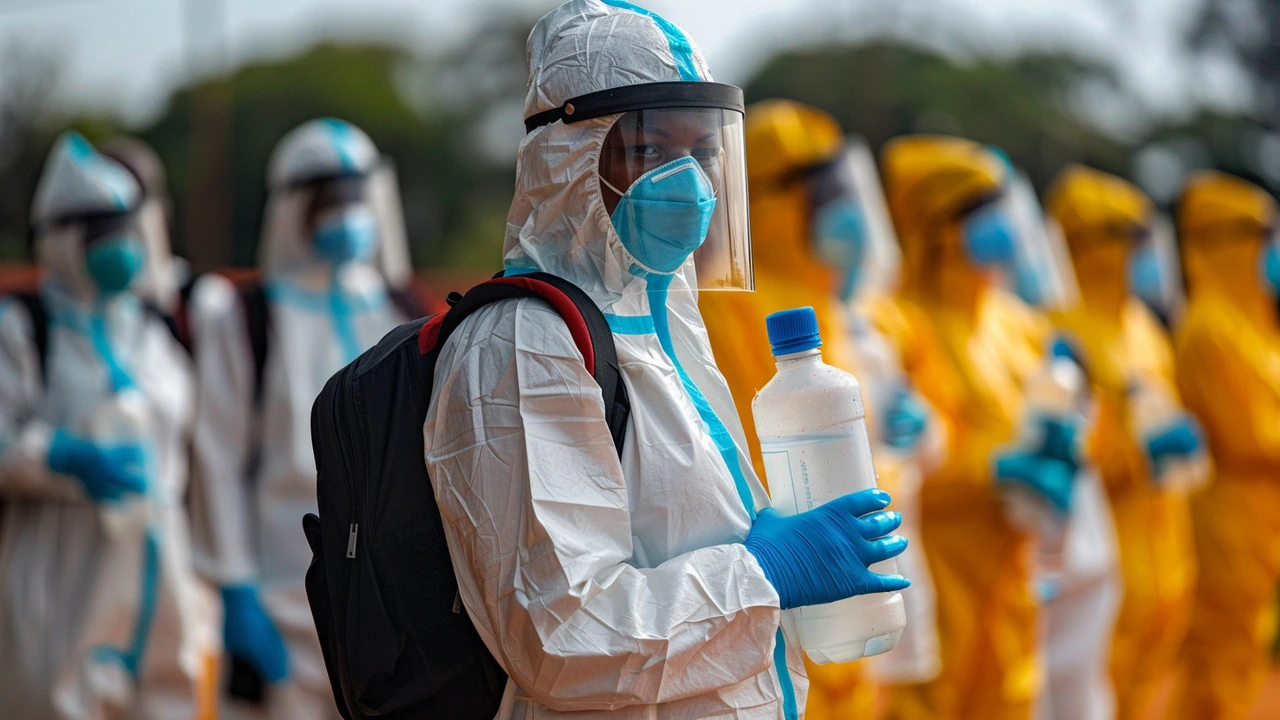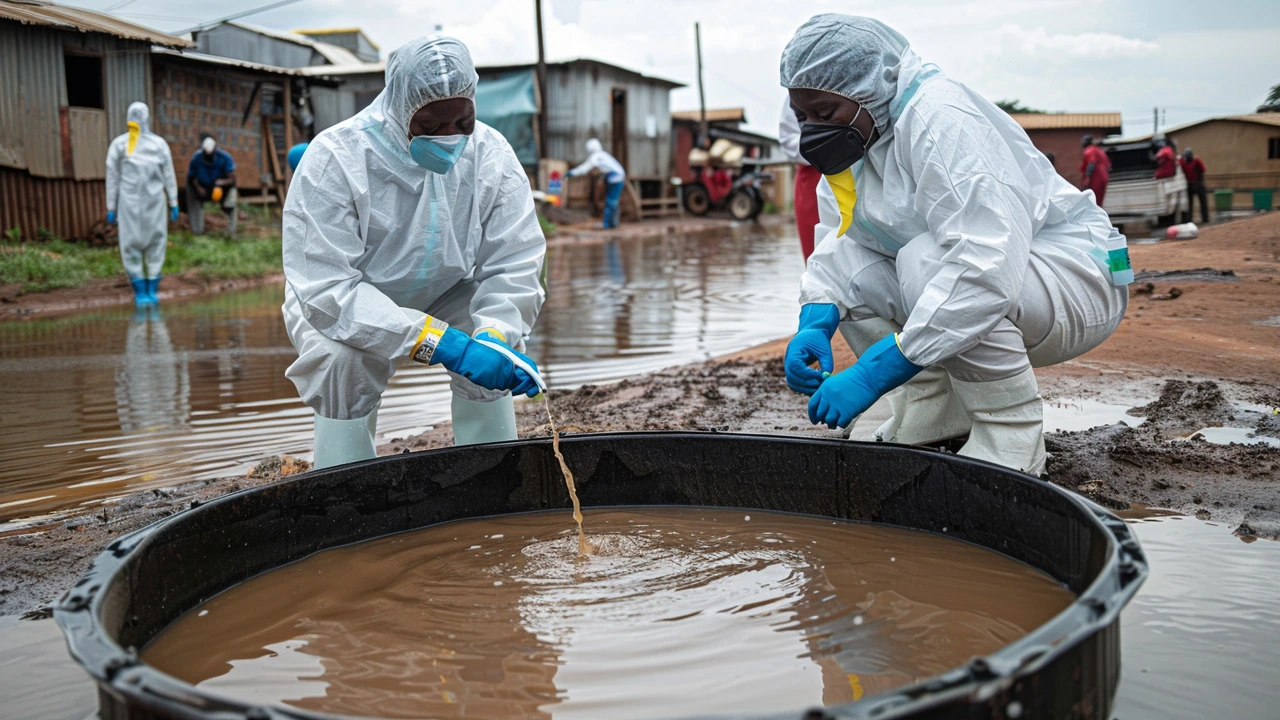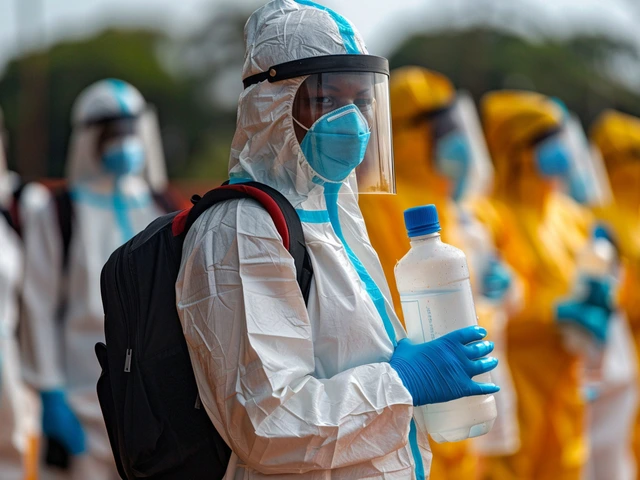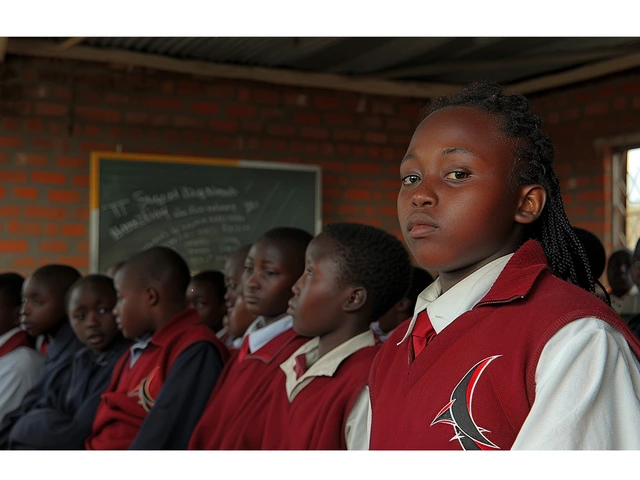
Lagos Faces Cholera Outbreak Amidst Eid al-Adha Celebrations: Urgent Measures Employed
Lagos Confronts Cholera Outbreak Amid Eid al-Adha Celebrations
In a troubling development, Lagos, Nigeria is grappling with a cholera outbreak that has already claimed the lives of at least 21 individuals and affected over 400 more. This health crisis has come on the heels of the Eid al-Adha festivities, which appear to have compounded the spread of the disease. The timely intervention of health authorities might be Lagos' best chance to stem the tide of this virulent infection.
The outbreak has thrust public health officials into a state of urgency. According to Kemi Ogunyemi, the governor’s special health adviser, the recent surge in cases can be directly attributed to the communal activities and gatherings observed during Eid al-Adha. During these festivities, large crowds often gather for festivities, increasing the likelihood of unintentional exposure to contaminated food and water sources. Unfortunately, this has given cholera the opportunity to spread rapidly within the densely populated city.
Identifying the Source of Contamination
To curb the outbreak, a collaborative effort has been launched involving the Ministry of Health, the State Environment Ministry, and the Lagos State Environmental Protection Agency (LASEPA). They are working diligently to collect and analyze samples from potential contamination points such as water supplies, food vendors, and beverage sources. By identifying and isolating the origins of the bacteria, health officials hope to mitigate further spread of the illness.
Residents of Lagos have been urged to seek immediate medical attention if they experience symptoms synonymous with cholera, which include watery diarrhea, vomiting, abdominal pain, overall malaise, and fever. Early diagnosis and treatment can significantly improve outcomes, and fortunately, the local authorities have ensured that treatment for cholera is available free of charge at designated public health centers. This measure is crucial, as it provides accessible healthcare solutions to those most in need.
Symptoms and Community Awareness
The symptoms of cholera are severe and can escalate quickly. Characterized primarily by profuse, watery diarrhea, the disease can lead to rapid dehydration and, if left untreated, can be fatal within hours. Vomiting, abdominal cramps, a general feeling of malaise, and fever are common accompanying symptoms. For a densely populated city like Lagos, where sanitation infrastructure might be overstretched, the rapid identification and treatment of cases are particularly critical.
Community awareness campaigns are now in full swing. Health officials are utilizing all available channels to disseminate information about the symptoms of cholera and the necessary steps to take should symptoms arise. These campaigns are vital in ensuring that those who may not have immediate access to health services still receive the crucial information needed to prevent and combat the illness. Education on hygiene practices, such as the importance of drinking clean water, properly cooking food, and washing hands regularly, is being emphasized to curb the potential spread of the disease.
Broader Implications and Vaccination Efforts
The implications of this outbreak extend beyond immediate health concerns. In a city as large as Lagos, an uncontrolled cholera epidemic could have far-reaching socio-economic impacts. The workforce could be significantly affected, and the burden on healthcare facilities could become overwhelming. Preventative measures, such as improving water sanitation and hygiene infrastructure, are being discussed as long-term solutions to prevent a recurrence.
In response to this growing crisis, the African pharmaceutical industry is collaborating with European nations, including France, to accelerate the development and distribution of a cholera vaccine. This international partnership aims to provide a sustainable solution to what has become a recurring problem in many African cities facing similar environmental and infrastructural challenges. The development of a vaccine could serve as a crucial tool in the ongoing battle against cholera, not just in Lagos but across the continent.

Urgent Actions and Future Preparedness
As Lagos faces this pressing health crisis, the collective efforts of government and health officials, international partnerships, and community awareness initiatives stand as beacons of hope. The immediate focus is on containing and overcoming the present outbreak, but long-term strategies are equally important. Ensuring access to clean water, proper sanitation, and hygiene education are pivotal steps in protecting the city's inhabitants from future outbreaks.
The resilience of Lagos' residents and the swift response from health authorities are key factors that will determine the city's ability to navigate through this ordeal. Continuous vigilance, resource allocation, and international cooperation are paramount in not only addressing the current situation but also in fortifying the city's defenses against future health crises.
By focusing on both immediate and long-term measures, there is hope that Lagos can emerge stronger and better prepared to tackle similar challenges in the future. The development of a cholera vaccine stands as a promising advancement, highlighting the importance of global cooperation in addressing public health issues that transcend national boundaries.
Ultimately, the situation in Lagos serves as a stark reminder of the critical need for robust public health infrastructure and the continuous effort required to maintain it. As the city battles this cholera outbreak, the lessons learned will undoubtedly shape the future of public health policy in Nigeria and beyond.






